Intersect reservoir simulator
Industry-leading reservoir simulation technology—with the physics, performance and resolution you need for every asset.
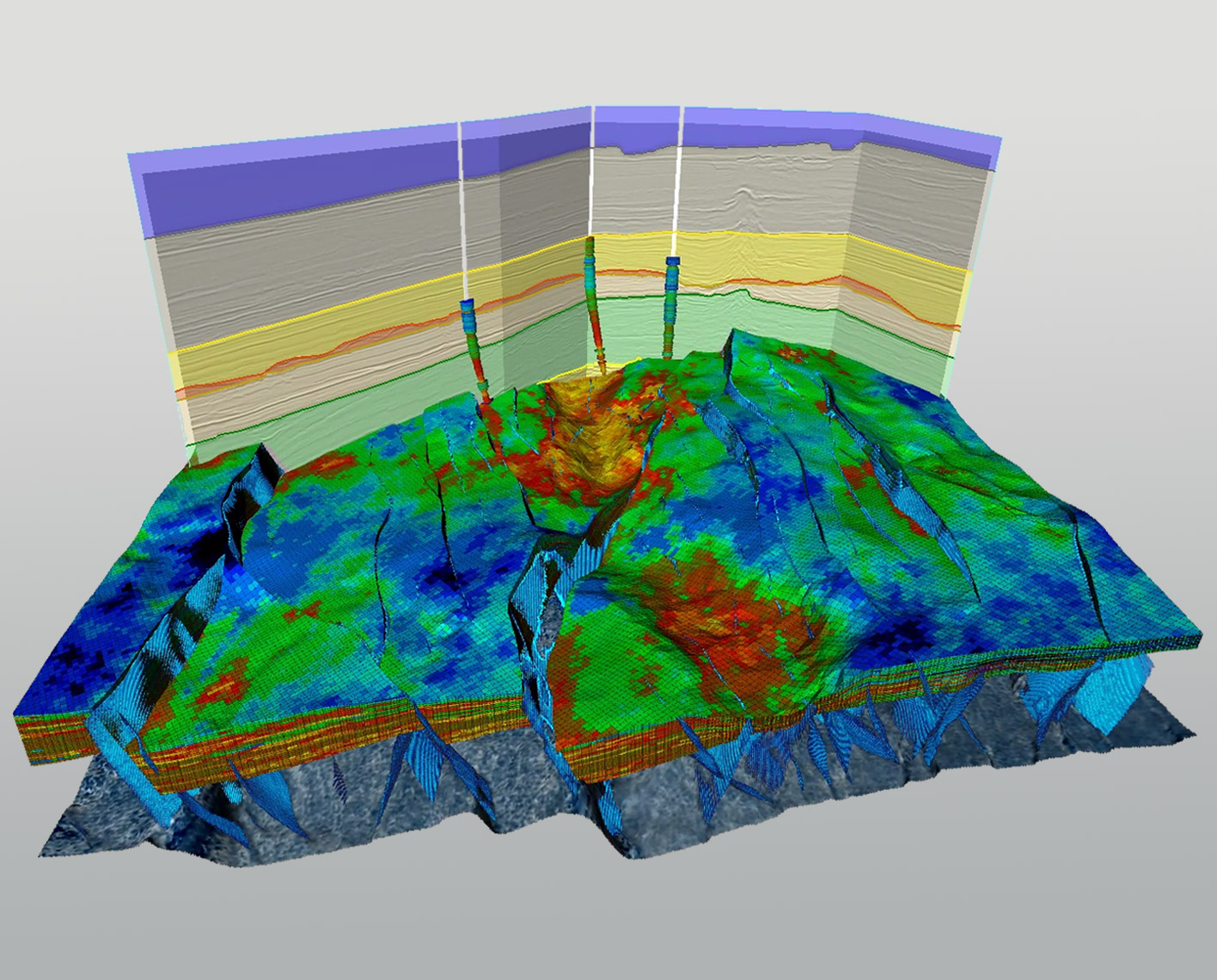
The Intersect™ reservoir simulator empowers reservoir engineers to tackle today’s most complex subsurface challenges with confidence.
Combining leading science, superior performance, and flexible gridding, the Intersect simulator delivers fast, scalable modeling for every reservoir type—whether it is a mature oil and gas fields, appraisal/exploration fields, unconventionals, or new energy applications like CO2 storage.
Seamlessly bridging data from geology, geophysics, geomechanics, and production engineering, the Intersect simulator enables smarter, more integrated workflows. It helps teams simulate reservoir behavior with greater accuracy, and in a faster, more cost-effective manner than ever before.
The result? Sharper insights, optimized recovery strategies, and more confident field development decisions.
Superior performance
State-of-the-art algorithms, that work across any hardware, for more confident simulation insights in an operational timeframe.

Leading science
Leveraging four decades of pioneering research and innovation in reservoir science, validated through industrial partnerships.
Integrated workflows
Multi-domain integrated workflows: for better field development decisions, uncertainty quantification, and optimized recovery.
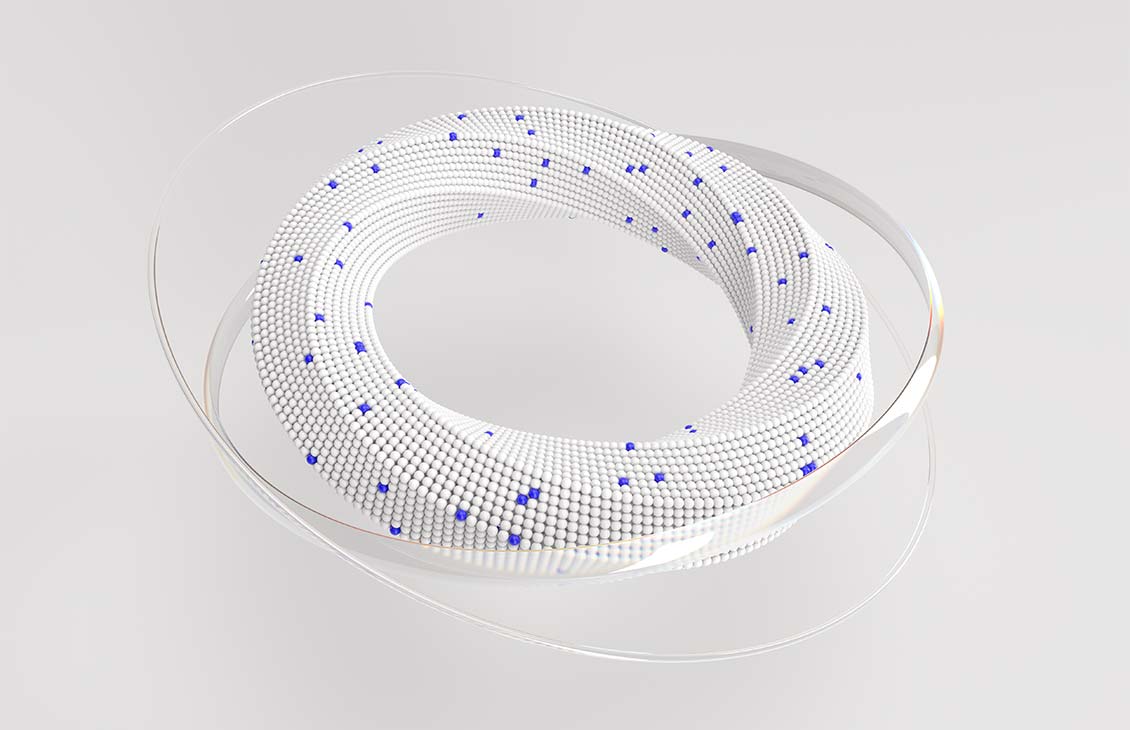
Delfi on Demand Reservoir Simulation
Leverage the full potential of the Intersect simulator using the Delfi digital platform to rapidly simulate multiple concurrent cases using Delfi on Demand Reservoir Simulation.
Learn more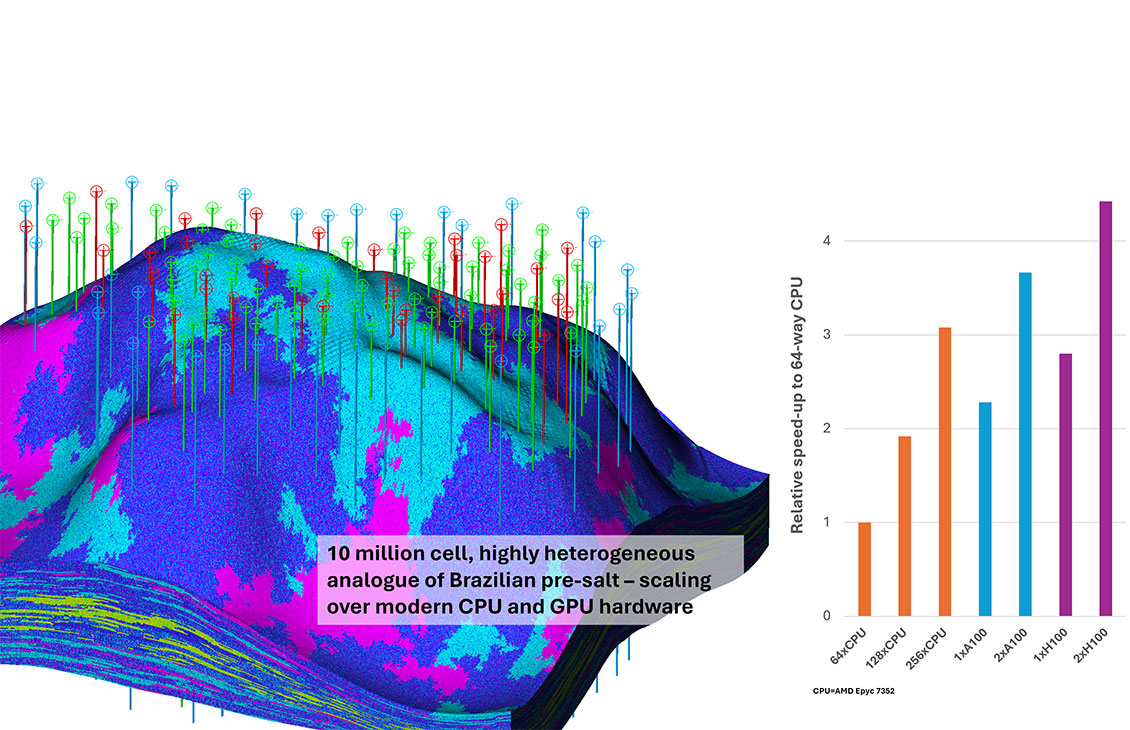
Now supporting multi-graphics processing unit (GPU) simulation
Intersect will now run with multiple parallel processes on NVDIA® GPUs. This enables you to use more than one GPU when running the Intersect simulator. By making use of the advances in modern GPU cards, multi-GPU allows engineers to run larger models, faster.
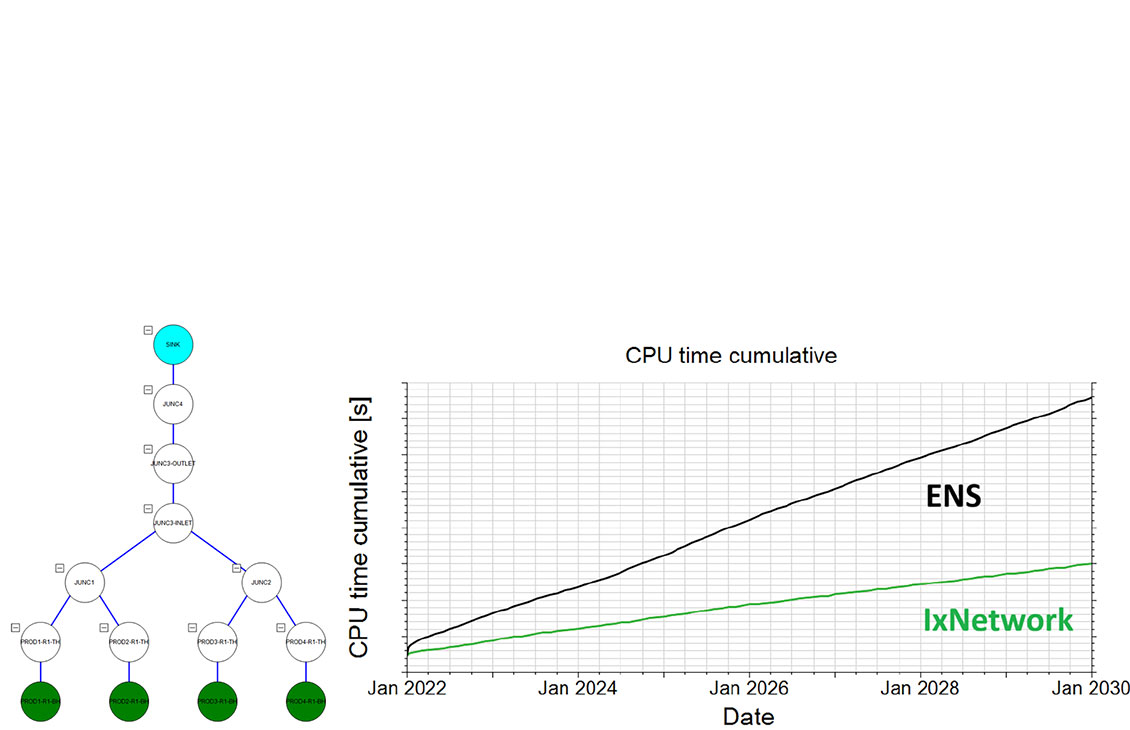
Introducing IxNetwork—a next generation fully implicit network solver
IxNetwork is a new implicit network solver that allows for faster and more stable integration of the reservoir and the surface production network within the Intersect simulator. It does so through a general, pipe-flow tabular description that is solved implicitly with the reservoir.
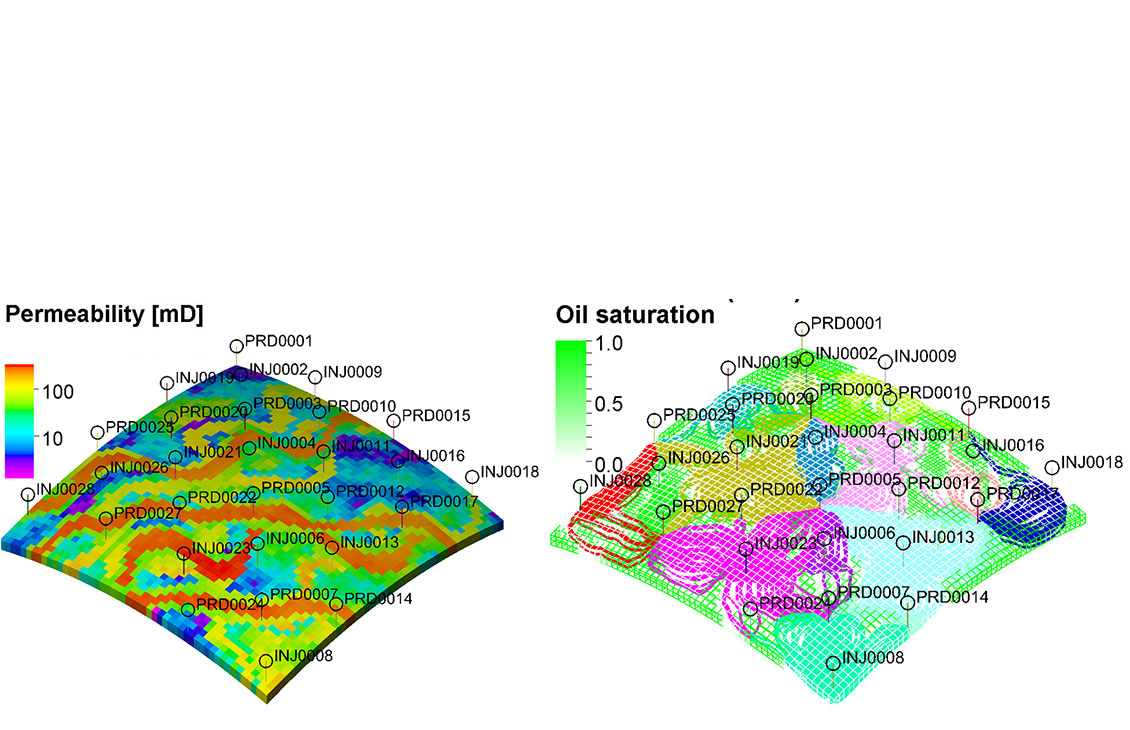
Geoscreening engine—now available in multiscale for more confident reservoir modeling
A geologic screening engine is now available within the multiscale framework. It enables you to quickly set up and run, at low computational cost, numerical experiments on entire ensembles to rank, screen, and select geologic models.
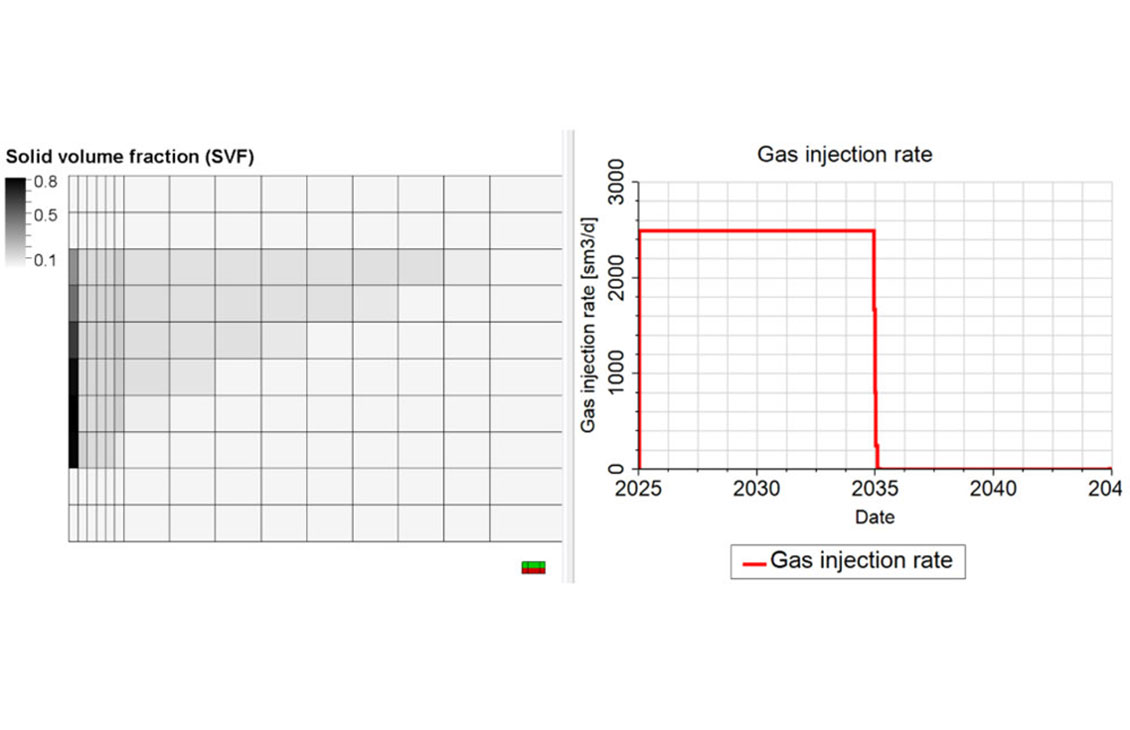
Model salt precipitation workflows for fast, accurate CO2 storage simulation
Evaluate the risk of injectivity impairment and well blockage from salt precipitation using the fast CO2STORE method. This is an implementation based on the Eclipse™ reservoir simulator, that enables engineers to evaluate the precipitation of NaCl into halite with a single command for activation.
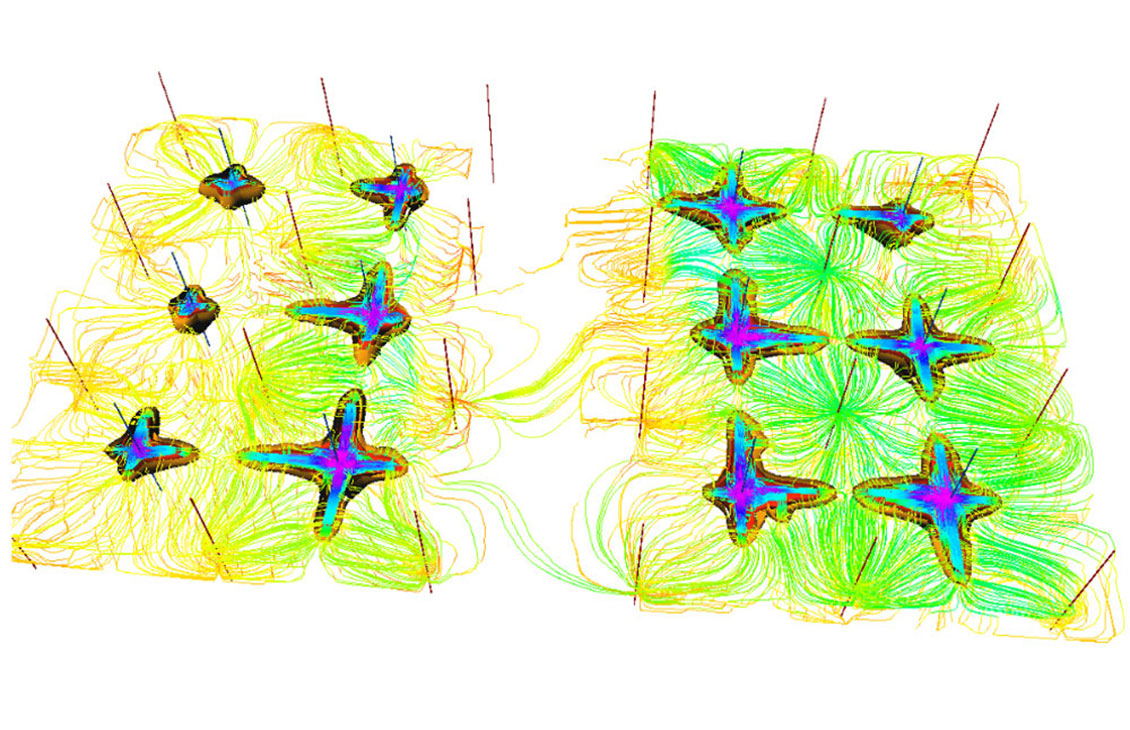
New rock mechanics model for cyclic steam stimulation (CSS) processes
Capture the physics of cyclic injection-production processes such as cyclic steam stimulation (CSS) with the introduction of the Beattie-Boberg rock compaction model. This method enables users to set the pressure and compressibility values to precisely control pore volume changes in both reversible and irreversible regimes of compaction and dilation, delivering more realistic simulation of reservoir behaviour.
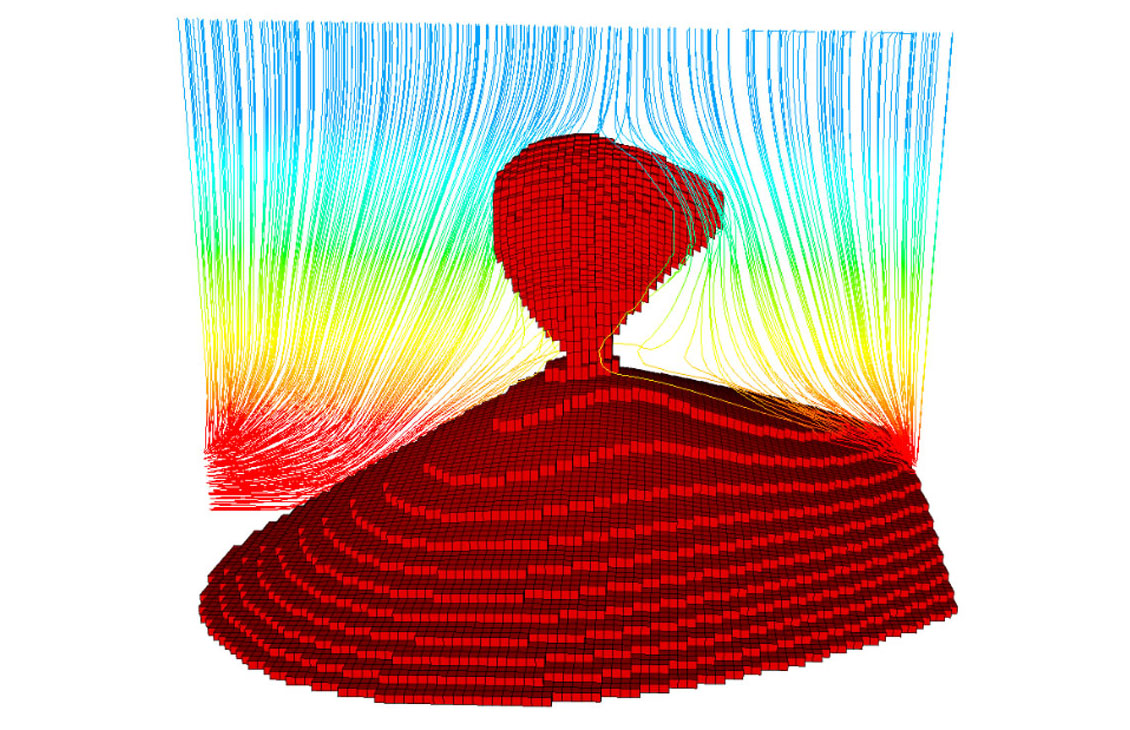
Enhanced geothermal modeling with heat flux boundary conditions
A new heat loss model is now available with flexible control of heat boundary conditions. This enables modeling of phenomena such as volcanic intrusions in geothermal workflows.
Intersect reservoir simulator
Intersect EOR
Simulate a wide range of enhanced oil recovery methods
Intersect field management
Simulate complex field development plans, multiple reservoirs and coupled networks
Intersect simulator and Petrel reservoir engineering
Integration of work processes enables the capture and preservation of knowledge contributing to a shared vision of the subsurface
Intersect simulator deployment services
Ensure that you get the maximum value from the Intersect simulator
Intersect simulator performance and scalability
Key technology enabler for increased reservoir understanding that improves reservoir management and field development planning
Intersect thermal
Simulate heavy oil reservoirs using a variety of thermal recovery processes

Intersect video library
-
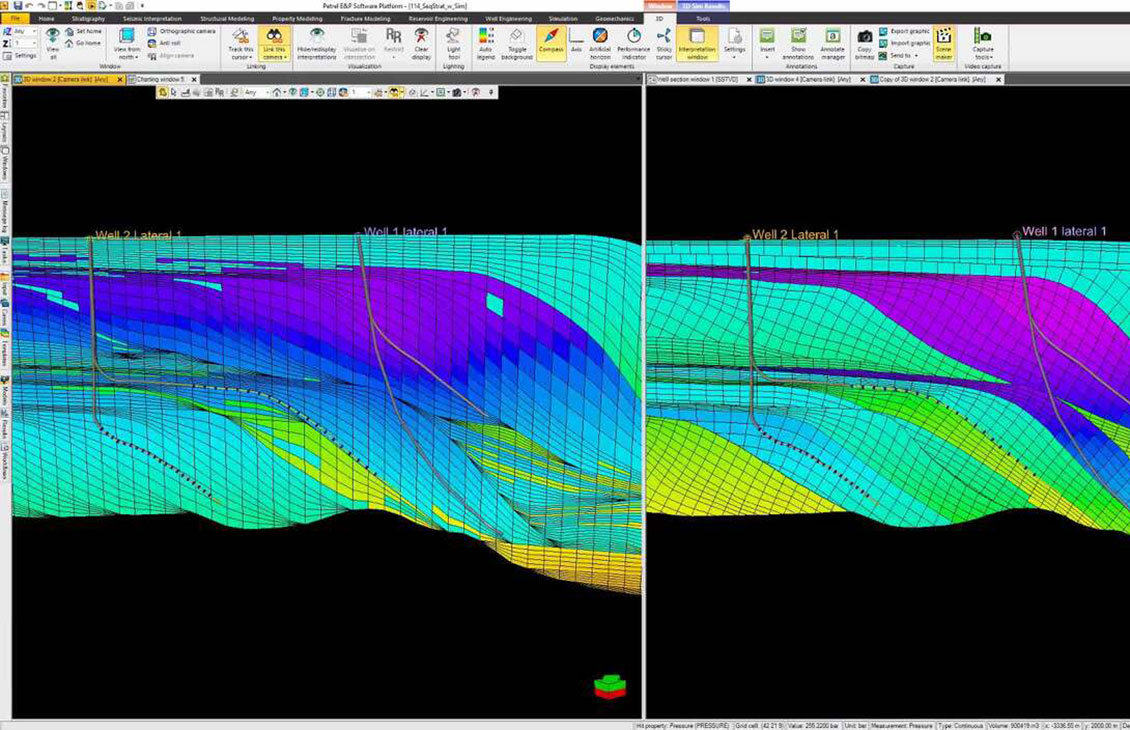
Intersect simulator and depogrid
Capture all the different unconformities and changes on the structure with high levels of detailDepogrid enables geologists and geomodelers to capture all the different unconformities and changes on the structure of the reservoir with high levels of detail.
-

Intersect different field development scenarios
Closing the gap with seamless geomodelling to simulation solutionsAdvanced geomodelling to simulation workflows that enable reservoir engineers to produce comprehensive views of the reservoir behavior.
-
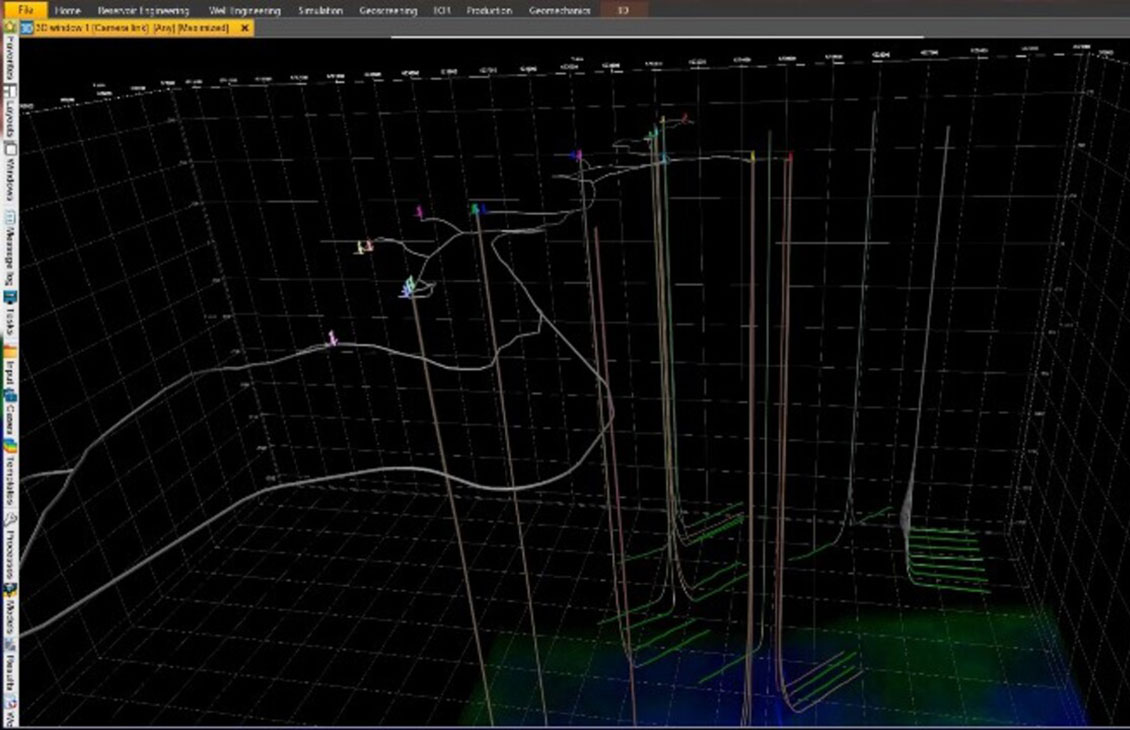
Intersect reservoir to processing
Advanced and flexible controls through a close-to-exact representation of the field operationsIntersect Field Management provides advanced and flexible controls through a close-to-exact representation of the field operations.
-
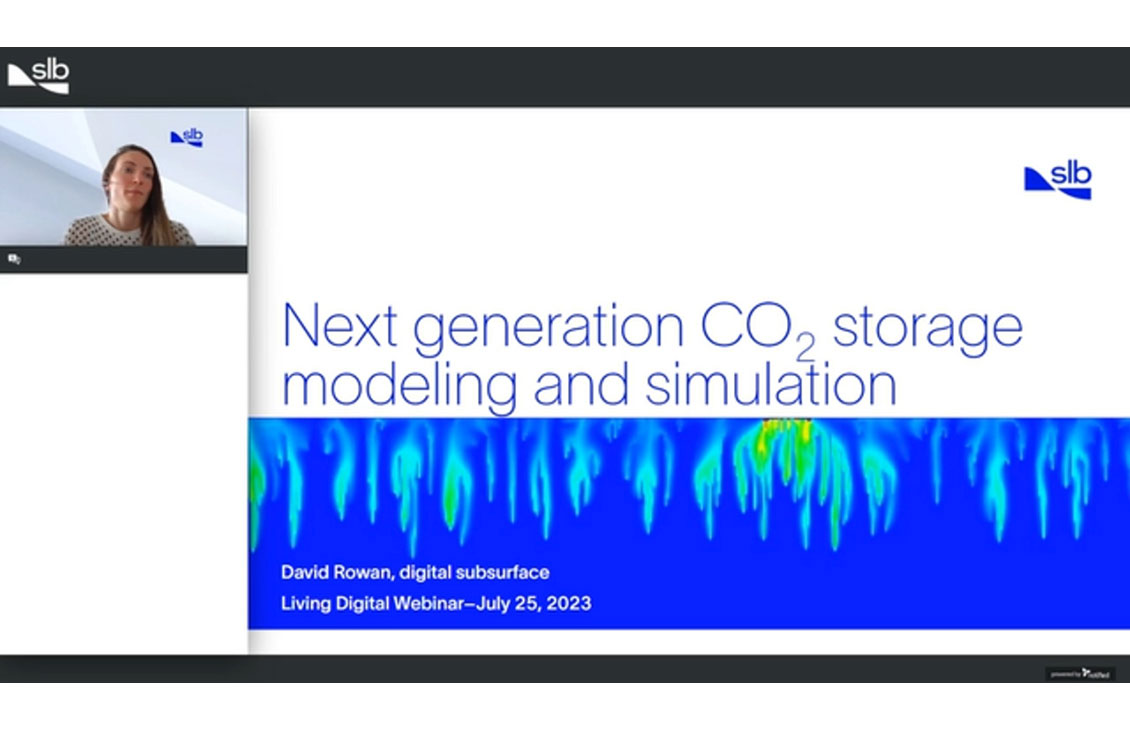
Next generation CO2 storage modeling and simulation
Access next generation CO2 storage modeling and simulation capabilitiesAccess next generation CO2 storage modeling and simulation capabilities with Petrel subsurface software and Intersect simulator.
Intersect webinar library
-
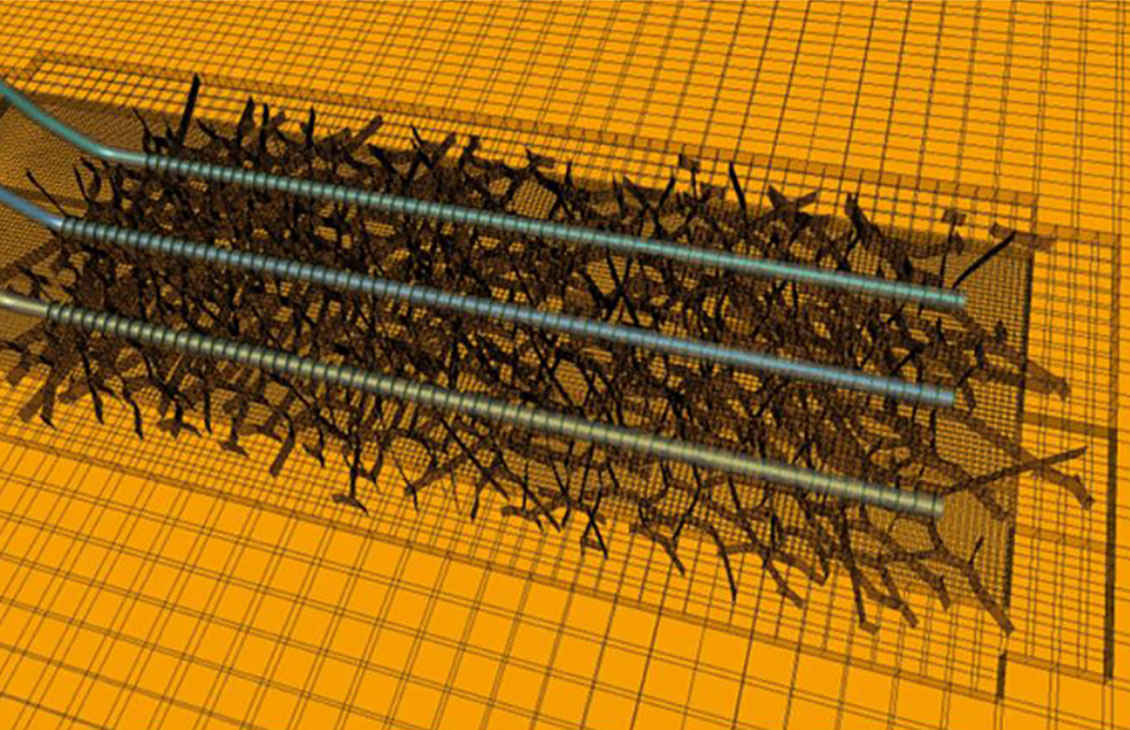
What’s new in Intersect 2025.1
Learn how our solutions employ industry-leading domain engines for real-time condition assessment.Learn how our solutions employ industry-leading domain engines for real-time condition assessment.
-
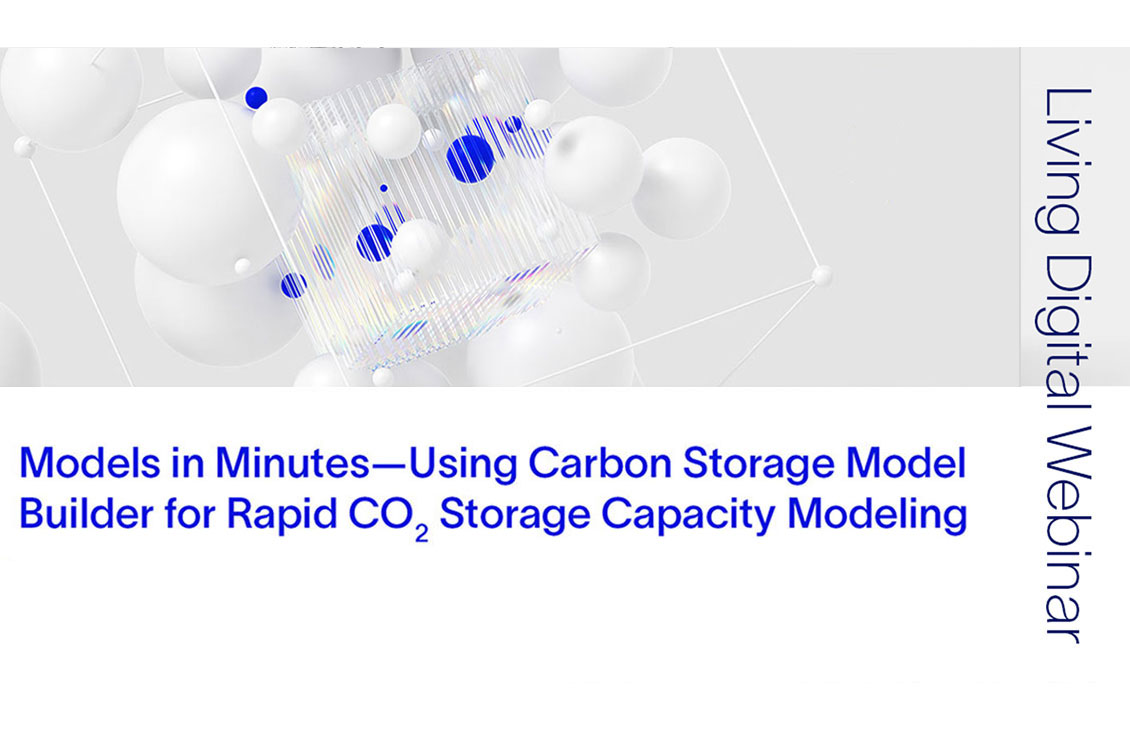
Models in Minutes—Using Carbon Storage Model Builder for Rapid CO2 Storage Capacity Modeling
The carbon storage model builder provides a step-by-step guided workflow for the setup of a simulation model to estimate CO2 capacityThe carbon storage model builder provides a step-by-step guided workflow for the setup of a simulation model to estimate CO2 capacity.
-

Introducing Well Placement Advisor
Living digital webinar - Well Placement Advisor is an ensemble-based well placement solution under uncertaintyWell Placement Advisor is an ensemble-based well placement solution under uncertainty. It is an analysis extension in Reservoir Engineering Workspace.
-

Asset management strategy
A holistic approach combining multiple domain modeling techniques for better outcomesA holistic approach combining multiple domain modeling techniques for better outcomes.
-

Living Digital: Agile Reservoir Modeling
SLB's recently launched Agile Reservoir Modeling workflow combines physics-based solutions with AI and high-performance computing on the cloud to orchestrate, model, and simulate responses to different development scenarios at unprecedent speeds.In this webinar, you will learn directly from SLB Subsurface Team about how Agile Reservoir Modeling will enable you to make better decisions faster.
